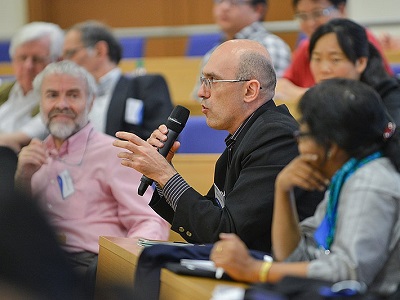ISET’s Noberto Pignatti publishes paper centered on Ukraine
- Details

ISET would like to congratulate resident faculty member Norberto Pignatti on the publication of a new paper (together with Hartmut Lehmann of the University of Bologna) entitled “Informal Employment Relationships and the Labor Market: Is there Segmentation in Ukraine?”, in the IZA Discussion Paper Series, from the Institute of Labor Economics, Bonn (the series is ranked 6th worldwide for economics by IDEAS/RePEc).
The authors investigated whether the Ukrainian labor market is segmented along a formal-informal divide, slicing the data by gender and age. Using information from the Ukrainian Longitudinal Monitoring Survey, covering the period of 2003-2007, they tested alternative hypotheses about the functioning of the Ukrainian labor market and the role of informal employment. They concluded that for a large number of informal employees, informal employment is used as a waiting stage to enter formal salaried employment and is not voluntarily chosen, potentially implying a loss of well-being associated with labor market segmentation. This is not true, however, as far as self-employment is concerned.
Kuala Lumpur Declaration on Cities 2030
- Details

About half of the world’s population are living in cities. Rapid urbanization puts pressure on urban infrastructure and labour markets, and also contributes to environmental degradation and speeds up the instability of construction projects and dwellings. Climate change is yet another cause which will harm the stability of cities. A solid and global plan on how to tackle urban planning is therefore much needed, which is why the New Urban Agenda was endorsed by the UN in 2016. The prospect of the Agenda is to function as a tool to halt poverty and realize the Sustainable Development Goals.
The 9th session of the World Urban Forum, Cities 2030, Cities for all: Implementing the New Urban Agenda, took place February 7-13 in Kuala Lumpur.










